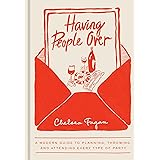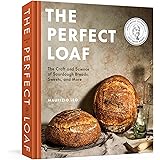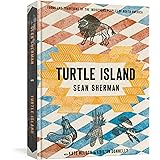Indeed, our culture often fosters a “blind spot” in our compassion. We extend warmth and concern to certain animals, yet overlook the suffering of others. This phenomenon is worth dissecting, particularly as we consider the ramifications of our consumption habits. The journey towards ethical vegan living is not merely a dietary change; it is a profound shift in perspective, acknowledging the sentience of all animals and our capacity for choice.
Understanding the Compassion Conundrum
Human compassion is a cornerstone of our humanity. We naturally sympathize with suffering. However, this sympathy often operates within culturally defined boundaries. We categorize animals. There are beloved pets, cherished family members who share our homes. Then, there is revered wildlife, majestic creatures admired from afar. Finally, there are livestock and seafood, designated as commodities for human consumption. This arbitrary division creates a profound moral inconsistency. Animals in all three categories possess the capacity to feel. They experience joy, fear, and pain. Their desire to live is universal. Yet, our treatment of them varies drastically based solely on their category.
The core of this blind spot lies in proximity. As the video illustrates, the physical distance between consumer and consequence facilitates detachment. When the animal is “miles down the road in a slaughterhouse,” the ethical implications recede. This psychological distancing allows us to maintain a narrative of compassion while participating in systems of exploitation. Consequently, understanding the lives of these “faceless units of production” becomes critical. We must bridge this gap, recognizing the individual behind the product.
The Sentience of Farmed Animals
Animals designated for food are undeniably sentient. They are conscious beings. Studies demonstrate, for instance, that pigs are highly intelligent. They can solve puzzles, exhibit complex social behaviors, and are even smarter than dogs in some respects. They possess cognitive abilities comparable to a three-year-old child. Cows form strong social bonds. They mourn their young. Chickens are capable of complex communication and problem-solving. Fish exhibit pain responses and avoid unpleasant stimuli. These creatures feel, perceive, and desire life, much like our cherished pets.
The harrowing experiences in industrial agriculture are well-documented. Cows are artificially impregnated annually. Their calves are forcibly removed within days of birth. This separation causes immense distress to both mother and baby. Male chicks are deemed “waste products.” Millions are ground alive or suffocated on their first day. Pigs endure confinement in their own waste. They face terrifying conditions before slaughter. Their fear is palpable. These are not mere automatons; they are feeling beings. The argument for ethical vegan living rests heavily on acknowledging this fundamental truth.
Debunking Common Objections to Vegan Living
Transitioning to a plant-based diet often encounters several common arguments. Many of these are rooted in cultural norms or misinformation. Let us address these prevalent misconceptions directly.
The Protein Myth: Fueling a Strong Body
One of the most frequent questions vegans face is, “Where do you get your protein?” The idea that animal products are necessary for sufficient protein is a persistent myth. Plant-based foods offer abundant, high-quality protein sources. Consider lentils, chickpeas, beans, tofu, tempeh, and seitan. These are protein powerhouses. Quinoa, nuts, seeds, and even many vegetables also contribute significantly. For example, spinach contains protein. Broccoli is another source. Athletes, bodybuilders, and powerlifters thrive on plant-based diets. Their physical prowess dispels any notion of protein deficiency. Optimal health and athletic performance are entirely achievable without animal products. This demonstrates the viability of vegan living.
“Happy Farms” and “Humane” Labels: A Deeper Look
Some consumers opt for “humanely raised” or “cage-free” products. They believe these labels alleviate ethical concerns. However, the overwhelming majority of animal products originate from factory farms. Even “happy farms” often still involve significant animal suffering. For instance, cows are still separated from their calves. Their lifespan is drastically cut short for human gain. Male chicks are still discarded. The core issue remains: animals are bred into existence. They are exploited for products. Then, they are killed at a fraction of their natural lifespan. This applies regardless of initial living conditions. Would we apply this same standard to a dog? If a dog lived a “happy life” for two years, would its slaughter then be “humane”? The answer is unequivocally no. The very concept of “humane slaughter” is an oxymoron when unnecessary.
Is Eating Animals “Natural”?
The “natural” argument suggests that humans are at the top of the food chain. Therefore, consuming animals is merely following nature’s course. However, this analogy is flawed. Lions are obligate carnivores. They must consume meat to survive. Humans, conversely, are omnivores. We possess a choice. We do not need animal products for health or survival. Furthermore, we do not mimic all natural animal behaviors. Lions kill cubs. Hyenas exhibit brutal social dynamics. We possess moral reasoning. We distinguish between right and wrong. Our ethical responsibility is to make choices that minimize harm. The existence of a choice fundamentally alters the “natural” justification for killing sentient beings.
Addressing the Cost of Vegan Living
Another common concern is the perceived expense of a vegan diet. While specialty vegan products can be pricey, staple plant-based foods are often very affordable. Beans, lentils, rice, potatoes, oats, seasonal fruits, and vegetables are inexpensive. They form the foundation of a healthy plant-based diet. Many resources and cookbooks guide individuals on budget-friendly vegan meals. It is entirely possible to eat well on a small budget. In fact, many find their grocery bills decrease after adopting vegan living.
The Power of Individual Choice
The question, “What difference can one person make?” often arises. The answer is significant. Every purchase is a vote. When you buy plant-based products, you signal demand. This encourages companies to produce more alternatives. Consider the evolution of milk alternatives. Decades ago, cow’s milk dominated. Today, oat, almond, soy, and pea milks are widely available. This shift is a direct result of changing consumer preferences. Your individual choices collectively shape the marketplace. They drive innovation. They reduce demand for animal products. Thus, each choice contributes to a larger movement towards ethical and sustainable food systems. Your impact on the trajectory of vegan living is immense.
The Environmental Imperative for Vegan Living
Beyond ethics and personal health, the environmental impact of animal agriculture is devastating. It represents a leading cause of our planet’s most pressing issues. The statistics are alarming. Animal agriculture contributes significantly to greenhouse gas emissions, exacerbating climate change. Methane, a potent greenhouse gas, is a byproduct of livestock digestion. Deforestation for grazing land and feed crop cultivation destroys vital ecosystems. This contributes to habitat destruction and species extinction. Furthermore, the industry is a major polluter of water resources. Runoff from farms contaminates rivers and oceans. This creates vast ocean dead zones. Our planet’s health is inextricably linked to our food systems. Choosing vegan living offers a powerful solution to these ecological crises. It is a demonstrable step towards environmental stewardship.
The intentional killing of over 70 billion land animals annually is unsustainable. Trillions of marine animals also suffer this fate. This mass exploitation has far-reaching consequences. It depletes natural resources. It disrupts ecological balance. Moreover, it impacts human health on a global scale. The good news is that this is an area where individuals hold immense power. Many global issues feel overwhelming. However, our food choices are within our direct control. Shifting towards a plant-based diet is a tangible way to create positive change. It benefits animals, the planet, and human well-being.
Embracing Ethical Vegan Living: A Practical Start
Making a change can seem daunting. Yet, starting a plant-based journey is surprisingly simple. One effective tip is to begin by replacing familiar foods with their plant-based versions. Do you enjoy milk in your coffee? Try oat milk. Do you love burgers for lunch? Explore the delicious array of plant-based burgers available. There are excellent vegan alternatives for butter, yogurt, and cheese. These products offer familiar tastes and textures. They ease the transition. This approach minimizes the feeling of deprivation. It makes the switch enjoyable and sustainable. The marketplace now caters to plant-based preferences. This makes ethical vegan living more accessible than ever before.
Ultimately, animals are not “for us”; they are “with us.” They play crucial roles in healthy ecosystems. We should strive for their flourishing, not their exploitation. Our culture often obscures this truth. It encourages us to ignore realities we would otherwise care deeply about. We possess innate compassion. We love animals. Therefore, aligning our actions with our values is paramount. Animals cannot advocate for themselves. They rely on us to speak up. They need us to make conscious decisions on their behalf. The blind spot of compassion can be illuminated. The choice to embrace ethical vegan living is a powerful step towards a more compassionate world.











